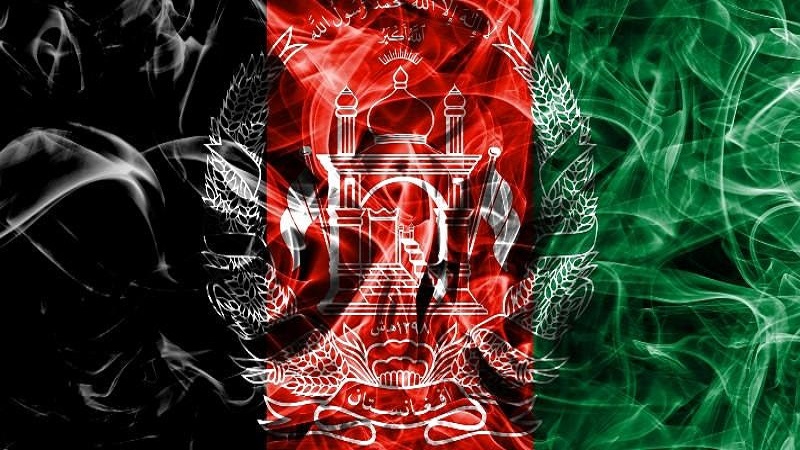Women’s Role in Peace-building in Afghanistan
Starts on Thu, 18 Mar 2021 13:30 Greenwich Mean Time (UTC±0)
Register here.
Fatima Gailani and Mina Al-Oraibi discuss the importance of women’s role in the peace negotiations in Afghanistan
International Women’s Day Lecture
Historic peace talks are currently taking place in Doha, Qatar, between the Taliban and Afghan government negotiators, aiming to end decades of war. Negotiations are long and complicated, and any political settlement needs to find a way to bridge the gap between an austerely Islamic state and the government’s commitment to a constitution that guarantees democracy and women’s rights. If successful, the negotiations will create a road map for post-war Afghanistan, with an end to violence and a permanent ceasefire.
Societal instability and conflict have eroded the rights of women and minorities in Afghanistan since the Communist coup d’etat in 1978; and when the country was under Taliban control, women were forbidden to work, attend school, or leave the house wearing anything other than an all-concealing burqa.
Give the gift of hope
We practice what we preach:
accurate, fearless journalism. But we can't do it alone.
- On the ground in Gaza, Syria, Israel, Egypt, Pakistan, and more
- Our program trained more than 100 journalists
- Calling out fake news and reporting real facts
- On the ground in Gaza, Syria, Israel, Egypt, Pakistan, and more
- Our program trained more than 100 journalists
- Calling out fake news and reporting real facts
Join us.
Support The Media Line. Save democracy.
The situation has improved since 2004, when a New Constitution was established which secured a seat in the two Houses of the Afghan parliament for two women from every province in Afghanistan and secured mandatory quotas for women’s employment in government and the private sector. There are still many challenges, however, with many women in rural areas suffering from a lack of access to education, low literacy level, and a lack of societal mobility.
It is essential therefore that women have a voice in the ongoing inter-Afghan discussions, and four influential women have been selected as Afghanistan government negotiators. One of these negotiators is one of Afghanistan’s most influential women, Fatima Gailani, who, for this event, will be joined by Mina Al-Oraibi, the first female Editor-in-Chief of The National (an English-language daily newspaper published in Abu Dhabi, UAE). Together, they will discuss the importance of women’s role in the peace negotiations.
Fatima Gailani
Fatima Gailani has been serving as the President of the Afghan Red Crescent Society since 2004. She is the daughter of Pir Sayed Ahmed Gailani, the leader of the National Islamic Front of Afghanistan who fought against the Soviet occupation of Afghanistan in the 1980s.
After graduating from Malalai High School in Kabul, Fatima obtained a BA and subsequently an MA in Persian Literature and Sufism in 1978 from the National University of Iran. She also earned an MA in Islamic Studies from the Muslim College in London in 1994. She lived in exile during the Soviet invasion of Afghanistan and acted as spokesperson in London for the Afghan Mujahideen. She attended the Bonne Conference on Afghanistan in 2001. After her return to Afghanistan, she was chosen as a delegate to the Emergency Loya Jirga – Grand Council – of June 2002 and was appointed as a constitution drafting and ratifying commissioner. Fatima Gailani is the author of two books (Mosques of London and a biography of Mohammed Mosa Shafi).
Mina Al-Oraibi
Mina Al-Oraibi is the Editor-in-Chief at The National. Previously she was the Assistant Editor-in-Chief at Asharq Alawsat, an international daily pan-Arab newspaper. Her work includes covering the UN approaches to searching for a solution to the Syrian crisis, Iraqi refugees, the development of the United States’ response to the Arab uprisings of 2011, along with high-profile interviews including former US President Barack Obama; former US Secretary of State John Kerry; former UK Foreign Secretary Philip Hammond, and former Iraqi Prime Minister Nouri Al-Maliki. She is a regular guest contributor on television and radio news programs, including Dateline London for the BBC and Weekend Program for BBC World Service. She was named a Young Global Leader in 2009 and is a member of the Global Agenda Council on the Middle East and the World Economic Forum. She also provides advice and support as a Special Advisor to the Global Dignity movement.
Mina was born in Sweden and raised in Iraq, Australia and Saudi Arabia, before moving to the United Kingdom. She was awarded a Distinction for her MA History Dissertation on the 1958 coup d’état in Iraq from University College London, where she also completed a Bachelors of Arts in History.
* * * * * * * * * * * * * * * * * * * * * * * *
Please ensure you use the correct email address, as this is where details of the online event will be sent. If you do not provide the correct address, you will not receive the acknowledgment email or ticket.



